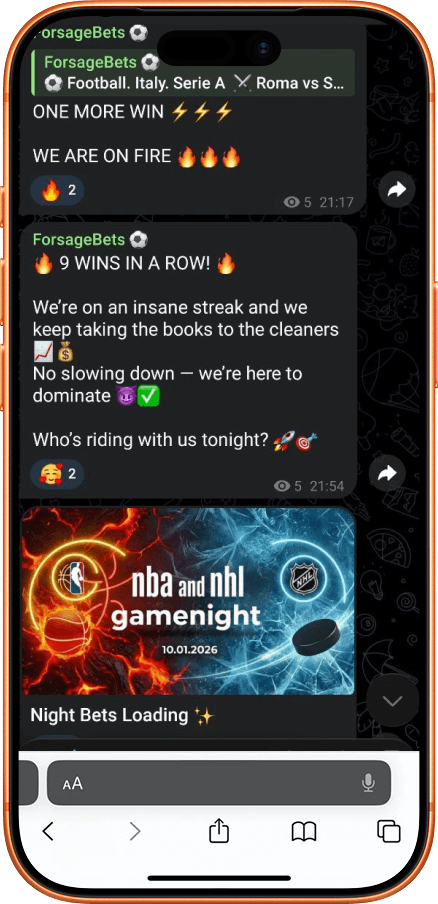Casino Ocean Spin Licensing & Legality

Understanding Online Casino Licensing and Regulation
Online casino licensing is the cornerstone of player protection and fair gaming in the digital gambling industry. At Ocean Spin, regulatory compliance ensures that every aspect of the platform operates under strict legal frameworks designed to protect players, prevent fraud, and maintain industry integrity. Licensed casinos must adhere to rigorous standards covering game fairness, financial security, responsible gambling measures, and transparent business practices. Understanding these licensing requirements helps players make informed decisions about where to play safely and confidently.
The online gambling industry is regulated by various jurisdictions worldwide, each with unique requirements and oversight mechanisms. Reputable online casinos like Ocean Spin obtain licenses from recognized authorities that conduct thorough background checks, financial audits, and ongoing compliance monitoring. These regulatory bodies ensure casinos maintain adequate player fund segregation, implement fair gaming practices, and provide mechanisms for dispute resolution. Licensed operation means players can trust that their funds are secure, games are fair, and their rights are protected under established legal frameworks. Learn more about bonus conditions in our Bonuses section.

Major Online Casino Licensing Authorities
Several prominent licensing jurisdictions govern online casinos, each offering different levels of player protection and regulatory oversight. The Malta Gaming Authority (MGA) is widely recognized as one of the most respected licensing bodies, requiring casinos to meet stringent financial, technical, and operational standards. MGA-licensed casinos must undergo regular audits, maintain separate player fund accounts, and participate in independent game fairness testing. This ensures players receive fair treatment and have access to effective dispute resolution mechanisms.
The United Kingdom Gambling Commission (UKGC) enforces some of the strictest regulations in the industry, with comprehensive requirements for player protection, advertising standards, and responsible gambling tools. UKGC-licensed casinos must implement robust age verification, self-exclusion programs, and transparent bonus terms. The Curacao eGaming license offers a more streamlined regulatory framework while still maintaining basic player protections and fair gaming standards. Other notable authorities include the Gibraltar Regulatory Authority, Kahnawake Gaming Commission, and Alderney Gambling Control Commission, each contributing to the diverse regulatory landscape of online gambling.
Licensing Requirements and Standards
Obtaining and maintaining an online casino license involves meeting extensive requirements across multiple operational areas. Licensing authorities conduct thorough background checks on casino operators, beneficial owners, and key personnel to ensure integrity and financial stability. Applicants must demonstrate adequate capitalization, secure banking arrangements, and comprehensive business plans. Technical systems undergo rigorous testing to verify random number generator (RNG) fairness, data security protocols, and system reliability. These requirements protect players from fraudulent operations and ensure casinos can meet their financial obligations.
Licensed casinos must implement specific player protection measures including responsible gambling tools, self-exclusion programs, deposit limits, and reality checks. Age verification systems prevent underage gambling, while anti-money laundering (AML) procedures ensure compliance with financial crime prevention regulations. Game fairness is verified through independent testing laboratories that certify RNG algorithms and return-to-player (RTP) percentages. Regular compliance audits ensure ongoing adherence to licensing standards, with authorities empowered to suspend or revoke licenses for violations. Ocean Spin maintains these standards consistently, providing players with a secure and regulated gaming environment.
Player Fund Protection and Segregation
One of the most critical aspects of casino licensing is player fund protection. Reputable licensing jurisdictions require casinos to segregate player funds from operational accounts, ensuring deposits remain protected even if the casino faces financial difficulties. This segregation means player balances are held in separate bank accounts and cannot be used for business expenses, creditor payments, or other operational purposes. In the event of insolvency, player funds are protected and returned to players before other creditors are paid.
Licensed casinos also maintain minimum capital requirements to demonstrate financial stability and ability to pay player winnings promptly. Regular financial audits verify that casinos maintain adequate reserves and operate within their means. Some jurisdictions require casinos to hold player protection insurance or contribute to compensation funds that reimburse players if a casino fails. These protections give players confidence that their deposits and winnings are secure, and they will receive payouts regardless of the casino's financial status. Ocean Spin adheres to strict fund segregation protocols, ensuring your money remains safe and accessible.
| Licensing Authority | Jurisdiction | Player Protection Level | Key Requirements |
|---|---|---|---|
| MGA | Malta | Very High | Fund segregation, RNG testing, dispute resolution |
| UKGC | United Kingdom | Highest | Strict advertising, self-exclusion, social responsibility |
| Curacao eGaming | Curacao | Moderate | Basic fairness, secure payments, licensing fees |
| Gibraltar | Gibraltar | High | Technical standards, player complaints, auditing |
Game Fairness and RNG Certification
Fair gaming is fundamental to licensed casino operations, with regulatory authorities requiring independent testing of all game outcomes. Random Number Generators power modern casino games, producing unpredictable results that cannot be manipulated by casinos or players. Independent testing laboratories like eCOGRA, iTech Labs, and Gaming Laboratories International (GLI) conduct rigorous testing of RNG algorithms to verify true randomness and compliance with statistical expectations. These tests ensure that game outcomes are genuinely random and that advertised RTP percentages are accurate.
Certified RNGs undergo continuous monitoring and periodic re-certification to maintain compliance standards. Testing labs analyze millions of game rounds to verify that results fall within expected statistical distributions and that no patterns or biases exist. RTP percentages must match published figures, ensuring players receive the advertised return over time. Licensed casinos display certification seals and testing reports, providing transparency about game fairness. Ocean Spin works exclusively with certified game providers, ensuring every spin, deal, and roll meets the highest fairness standards. Players can verify game certifications and RTP information directly through the casino platform.
Responsible Gambling and Player Protection Tools
Licensed casinos must implement comprehensive responsible gambling programs that help players maintain control over their gaming activities. These programs include various tools and features designed to prevent problem gambling and support players who may be experiencing difficulties. Deposit limits allow players to set daily, weekly, or monthly maximum deposit amounts, preventing excessive spending. Session time limits remind players how long they have been playing and encourage breaks. Reality check notifications appear at regular intervals, displaying session duration and net win/loss figures.
Self-exclusion programs enable players to voluntarily ban themselves from casino access for specified periods, ranging from days to permanent exclusion. During self-exclusion, players cannot access their accounts, make deposits, or receive promotional materials. Some jurisdictions maintain central self-exclusion databases that block access across multiple licensed operators. Licensed casinos also provide links to professional gambling support organizations like GamCare, Gamblers Anonymous, and BeGambleAware. These organizations offer counseling, support groups, and resources for players and families affected by problem gambling. Ocean Spin takes responsible gambling seriously, providing easy access to all protective tools and support resources. Visit our Tips page to learn healthy gaming habits.

Anti-Money Laundering and KYC Procedures
Licensed casinos operate under strict anti-money laundering (AML) regulations that prevent criminal use of gambling platforms for financial crime. Know Your Customer (KYC) procedures require casinos to verify player identities through government-issued documents, proof of address, and payment method verification. This verification prevents identity theft, underage gambling, and account fraud. Players typically submit identification documents like passports or driver licenses, utility bills, and bank statements to complete verification.
Enhanced due diligence applies to high-value transactions, VIP players, and withdrawals exceeding certain thresholds. Casinos monitor transactions for suspicious patterns that might indicate money laundering, such as large deposits followed by immediate withdrawals without significant play. Source of funds verification may be required for unusually large deposits, ensuring funds originate from legitimate sources. These AML measures protect both casinos and players from financial crime while maintaining regulatory compliance. Ocean Spin conducts KYC verification efficiently and securely, protecting player information with advanced encryption and strict privacy policies.
Dispute Resolution and Player Complaints
Licensed casinos must provide accessible mechanisms for resolving player disputes and complaints. Regulatory authorities require casinos to maintain responsive customer support channels and handle complaints fairly and promptly. Players who cannot resolve issues directly with the casino can escalate complaints to the licensing authority or independent Alternative Dispute Resolution (ADR) services. These organizations investigate disputes impartially and issue binding decisions when casinos fail to meet their obligations.
Common dispute subjects include delayed payments, bonus term disagreements, account closures, and technical game issues. Licensed casinos must maintain detailed records of all transactions, gameplay, and communications to facilitate dispute investigation. Players should document their issues with screenshots, transaction IDs, and correspondence records when filing complaints. Most disputes are resolved through direct communication with casino support, but ADR services provide an important safety net when direct resolution fails. Ocean Spin maintains transparent policies, responsive support, and fair dispute handling, ensuring player concerns receive prompt and professional attention. For detailed insights into player strategies and bankroll safety, visit our Tips section.


 Join Free Channel
Join Free Channel 
